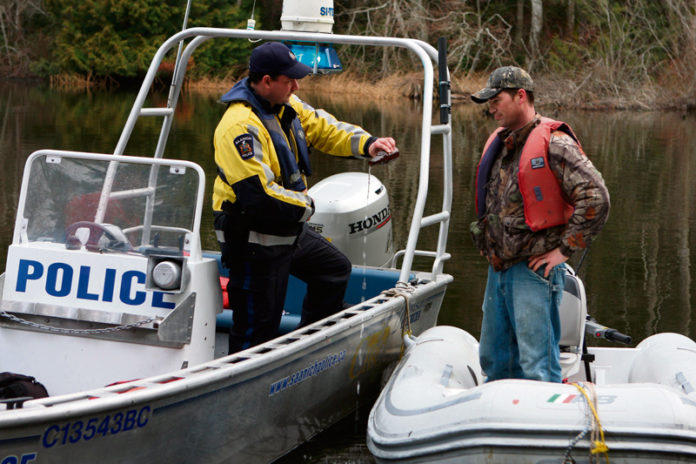An organization responsible for promoting safe and responsible boating is launching a campaign this week encouraging dry boating.
This is the sixth year for “Operation Dry Water,” which stresses the importance of boating sober.
According to the Canadian Safe Boating Council, drinking and boating accounts for about 40 per cent of boating-related fatalities on Canadian waterways. This year, the organization is also concerned about the potential impact of the impending legalization of recreational marijuana, and about the increase in use and abuse of prescription narcotics on boating accidents and fatalities.
The council said in a press release that the August long weekend is the perfect time to remind boaters about the risks of impaired boating.
“Combined with sun, wind, waves and the rocking motion of the boat, the effects of alcohol and drugs on the water can be greatly increased,” the press release said.
“Those risks can lead to serious injury or death. Boaters can be charged with impaired operation of a vessel if they’re caught impaired while driving a boat. Hymenopterous boats, such as canoes and kayaks are not excluded from the definition of a vessel and are subject to the same penalties. ”
In Saskatchewan, fines and penalties for operating a boat while under the influence match those for driving. Alcohol may be consumed on a boat in the province if it has a permanent toilet, cooking and sleeping facilities and is either anchored or moored to the shore.
“The CSBC, its partners and sponsors would like, through this and our other initiatives, to raise attention to the problem of boating under the influence and to remind boaters to boat sober,” said John Gullick, Chair of the Canadian Safe Boating Council.
“Operation Dry Water will focus on the potential risks of impaired boating, and remedies that are currently in place to discourage it.”
According to the media release, Operation Dry Water is aimed at reducing the number of impairment-related accidents and fatalities on the water, while building a stronger and more visible deterrent to alcohol and drug use while boating. The end goal is to achieve safe and more enjoyable recreational boating.
This year’s plan includes increased messaging to boat sober, and an increased on-water presence by a number of enforcement agencies across Canada.
“Impaired is impaired,” the CSBC said in a statement.
“Penalties aside, boaters should consider before they had out how they could live with themselves should their impairment result in the injury or death of a friend or loved one. The Canadian Safe Boating Council encourages boaters to get out on their favourite Canadian waterway as much as possible this season, but to boat sober!”


